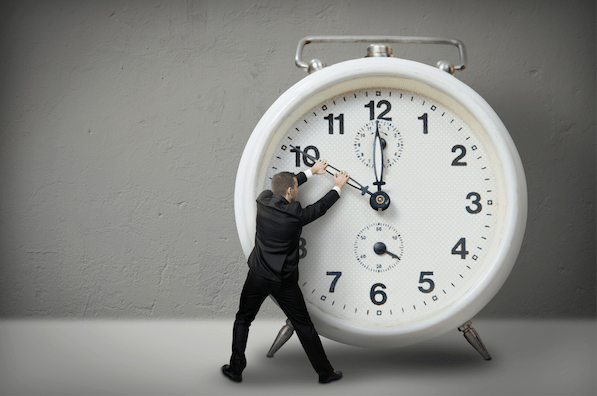I had an insanely long group meeting today, and as the time ticked past 90 minutes, my patience plummeted. This group’s meeting style is extremely sub-optimal, in my opinion, but that’s a rant for another day. Really, I was frustrated because it felt like a waste of my time to play witness in what felt like a series of one-on-one advisor meetings. When the meeting ended at 2 hours, my frustration was so high that there would be no way I could return back to my desk and focus. So, at 4 pm, I hightailed it home, all the while feeling guilty about no work being done from 2 pm ’til who knew when I would resume again that day.
While at home recuperating and browsing the Internet on my phone, an article caught my eye: Darwin Was a Slacker and You Should Be Too. What? This work is actually an excerpt from Alex Soojung-Kim Pang’s book, REST: Why You Get More Done When You Work Less, but you wouldn’t be able to tell; it’s a captivating piece all on its own.
We live in this culture in which workaholics are respected, and material success (e.g., honors, awards, publications) is a high motivator. Is it really the way to go? Perhaps not. In this article, you get a glimpse into one of the most famous scientists, Charles Darwin, who only worked a few hours a day. Darwin isn’t a unique case; this leisurely style was also adopted by a number of scientists, including the mathematician Henri Poincaré.
There was a study done by Illinois Institute of Technology psychology professors Raymond Van Zelst and Willard Kerr, who conducted surveys of their colleagues and graphed number of hours spent in office versus number of articles produced.
Scientists who spent 25 hours in the workplace were no more productive than those who spent five. Scientists working 35 hours a week were half as productive as their 20-hours-a-week colleagues. … After that, it was all downhill: The 60-plus-hour-a-week researchers were the least productive of all.
[I couldn’t find the (maybe informal) study, and therefore take this bit with a grain of salt. It would be neat if there was a more rigorous version done and to see those results.]
Not limited to scientists, a similar lifestyle was observed in violin students. Karl Anders Ericsson, Ralf Krampe, and Clemens Tesch-Römer conducted this study to see what sets the best students apart. This work would later be a foundation to Malcolm Gladwell’s book Outliers, where Gladwell posits that increasingly common idea that 10,000 hours of practice are necessary to become an expert in anything. However, an integral conclusion of Ericsson’s study was glossed over, being the importance of recovery – and not burning out.
How do students marked for greatness make the most of limited practice time? The rhythm of their practice follows a distinctive pattern. They put in more hours per week in the practice room or playing field, but they don’t do it by making each practice longer. Instead, they have more frequent, shorter sessions, each lasting about 80 to 90 minutes, with half-hour breaks in between. Add these several practices up, and what do you get? About four hours a day. About the same amount of time Darwin spent every day doing his hardest work, Hardy and Littlewood spent doing math, Dickens and King spent writing.
In closing,
This illustrates a blind spot that scientists, scholars, and almost all of us share: a tendency to focus on focused work, to assume that the road to greater creativity is paved by life hacks, propped up by eccentric habits, or smoothed by Adderall or LSD. Those who research world-class performance focus only on what students do in the gym or track or practice room. Everybody focuses on the most obvious, measurable forms of work and tries to make those more effective and more productive. They don’t ask whether there are other ways to improve performance, and improve your life.
This is how we’ve come to believe that world-class performance comes after 10,000 hours of practice. But that’s wrong. It comes after 10,000 hours of deliberate practice, 12,500 hours of deliberate rest, and 30,000 hours of sleep.
